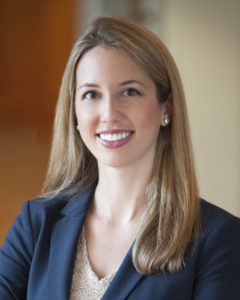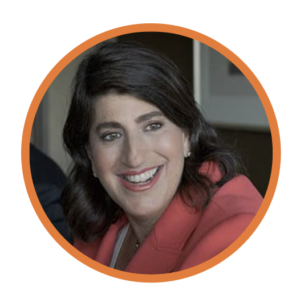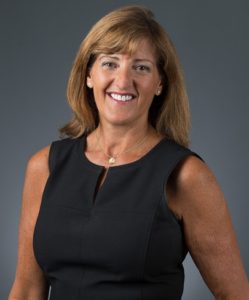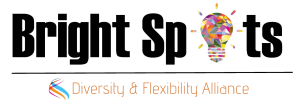Award to be presented at the Diversity & Flexibility Alliance Virtual Conference on November 3
Washington, DC (October 26, 2021) – The Diversity and Flexibility Alliance will present Judge Tonya Parker of Dallas County Texas with its 2021 Luminary Award. This award recognizes a global thought leader who is consistently and uniquely devoted to the advancement of diversity and whose vision is leaving a lasting legacy of inclusivity for future leaders. The Alliance will present the award to Judge Parker on Wednesday, November 3, during its virtual annual conference Reflect. Reimagine. Recalibrate. Paving the Way to Inclusive Flexibility. Registration is open to the public and is available here.
Dedicated public servant, recognized thought leader and former award-winning law firm partner, the Honorable Tonya Parker has held the position of Judge of the 116th Judicial District Court in Dallas County Texas since 2011. Throughout her distinguished career, she has consistently been recognized by local, state and national organizations for her exceptional legal skills as well as her commitment to diversity and inclusion. She has been a tireless advocate for women and members of the LGBTQ community, breaking barriers and committing countless hours to fighting bias and discrimination in the judicial system and beyond.
Among many other honors, in 2021 Judge Parker received the Women’s Commercial and Business Advocate Committee of the American Bar Association Business Law Section’s award for service and commitment to women in the profession, as well as the Dallas Bar Association’s Martin Luther King, Jr. Justice Award in recognition of the barriers she has broken in the legal community. In 2019, the State Bar of Texas African American Lawyers’ Section awarded her its Distinguished Jurist Award in acknowledgment of the leadership role she played in spearheading the Implicit Bias Project in the Dallas Civil District Courts. In 2018, the Dallas NAACP awarded her the President’s Award for Legal Excellence and in 2017 she received the Stonewall Award from the American Bar Association’s Sexual Orientation and Gender Identity Commission.
A 2021 graduate of Stagen’s Social Change Leadership Program, she has devoted countless hours to volunteering at civic organizations and has focused much of her efforts on inspiring women to run for public office. Over the last decade she has been a regular volunteer with IGNITE, a non-partisan organization aimed at building political ambition in and training young women to run for public office. She has also been tackling the impact of implicit bias in the judicial system by spearheading the Implicit Bias Project and is focused on examining oppression and privilege, particularly how they play out in the daily lives of individuals and society as a whole. Judge Parker has become well known for her moving keynote speeches and TED Talks that impart brilliant and impassioned messages.
“With her trailblazing actions and powerful words, Judge Parker truly embodies the essence of our Luminary Award,” said Manar Morales, President & CEO of the Diversity & Flexibility Alliance. “Not only is she a devoted mentor and champion for women and members of the LGBTQ community in the legal profession, but her wisdom and guidance will clearly have a lasting impact on the leaders of today and tomorrow,” she added.
“Promoting diversity AND flexibility is how we will achieve equity in the workplace for historically marginalized groups and work/life balance for everyone,” said Judge Parker. “DFA has long understood and advocated for both which is why I am so honored to receive the Luminary Award from the organization. It is humbling to be recognized as a thought leader who shines a light on the issues of our day through my talks and presentations on labels, oppression, privilege, and allyship,” she added.
The Diversity and Flexibility Alliance is a think tank that collaborates with organizations to develop non-stigmatized flexible work policies that promote inclusive work cultures and help to advance more women into leadership positions. The Alliance provides practical research-based solutions, training workshops, and strategic advisory services that increase organizational effectiveness through diversity and flexibility.
Registration for the conference is available here.
Contact: Manar Morales
202-957-9650

 Elise Attridge: After my first child was born in 2016, I started working at an 80% reduced hour schedule. At that time, I had been a Litigation Associate at Morgan Lewis for five years.
Elise Attridge: After my first child was born in 2016, I started working at an 80% reduced hour schedule. At that time, I had been a Litigation Associate at Morgan Lewis for five years. Diversity & Flexibility Alliance: What is the most meaningful advice you have received? Who has had the most influence on your career?
Diversity & Flexibility Alliance: What is the most meaningful advice you have received? Who has had the most influence on your career? Diversity & Flexibility Alliance: How have you made flexibility a priority and a success with your schedule? How has the firm and/or your clients contributed to this?
Diversity & Flexibility Alliance: How have you made flexibility a priority and a success with your schedule? How has the firm and/or your clients contributed to this? Diversity & Flexibility Alliance: How have you made flexibility a priority and a success with your schedule? How have the firm and/or your clients contributed to this?
Diversity & Flexibility Alliance: How have you made flexibility a priority and a success with your schedule? How have the firm and/or your clients contributed to this?